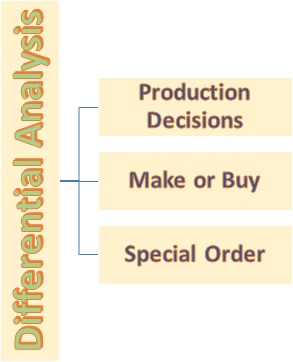Special Order Decisions
Sometimes managers of manufacturing companies may be faced with making a decision of special orders. Special orders can be made by customers or non-customers of a given company. Besides, special orders may be seasonal or continuous for a given time.Special orders must be carefully considered because unlike other decisions, they may throw the company into unethical questions, lead to lose of regular customers, or affect the quality of regular products.
It is very important to note that production should not exceed the manufacturing capacity. Although, manufacturing plants can accommodate 100% factory workload, many factories or manufacturing companies do not exceed the 80% factory capacityt.
If a special order is received for consideration, the first thing the managers must look at is the manufacturing capacity. If the manufacturing capacity will go over the required limit, the special order should be rejected or some adjustments should be made to ensure factory capacity is not exceeded.
However, assuming the factory capacity is not exceeded, managers always face the challenge of making differential analysis of whether to accept or reject special orders.
To better understand how to go about this, we are going to have an example of a situation in a production setting that requires an incremental analysis decision.
Example of Special Order Decisions - Scenario
If Joraki Inc. receives a request for a special order to make 50,000 special pens for a neighboring college for $0.30 per pen. The order is for only one month upon which the college will have enough pens and surplus for its staff. The current cost of producing a pen is $0.30 given the variable cost of $0.10 and the fixed cost of 0.20. Joraki Inc. sells its pens to various wholesalers at $0.50 a pen. Currently, Joraki Inc. makes 400,000 pens a month and its factory capacity is 500,000 pens a month. Do you think Joraki’s management should take the order or not?Solution: Incremental Analysis Approach
Note: the total pens produced without special order is 400,000; the total pens produced with a special order is 450,000; the normal selling price is $0.5 a pen and $0.3 a pen for the special order
| Without Special Order | With Special Order | Incremental Difference | |
|---|---|---|---|
| Sales | |||
| Regular 400,000@ $0.50 | $200,000 | $200,000 | 0 |
| Special Order 50,000 @ $0.30 | 0 | $15,000 | ($15,000) |
| Manufacturing Costs | |||
| Variable @ $0.10 | ($40,000) | ($45,000) | ($5,000) |
| Fixed @ $0.20 | ($80,000) | ($80,000) | 0 |
| Total Costs | $80,000 | $90,000 | ($10,000) |
Based on the incremental analysis table above, Joraki Inc. will make $10,000 more profits by accepting the special order. Thus, Joraki Inc. should accept the special order because it will make $10,000 more which could be used for operational costs or could be invested by the company.

